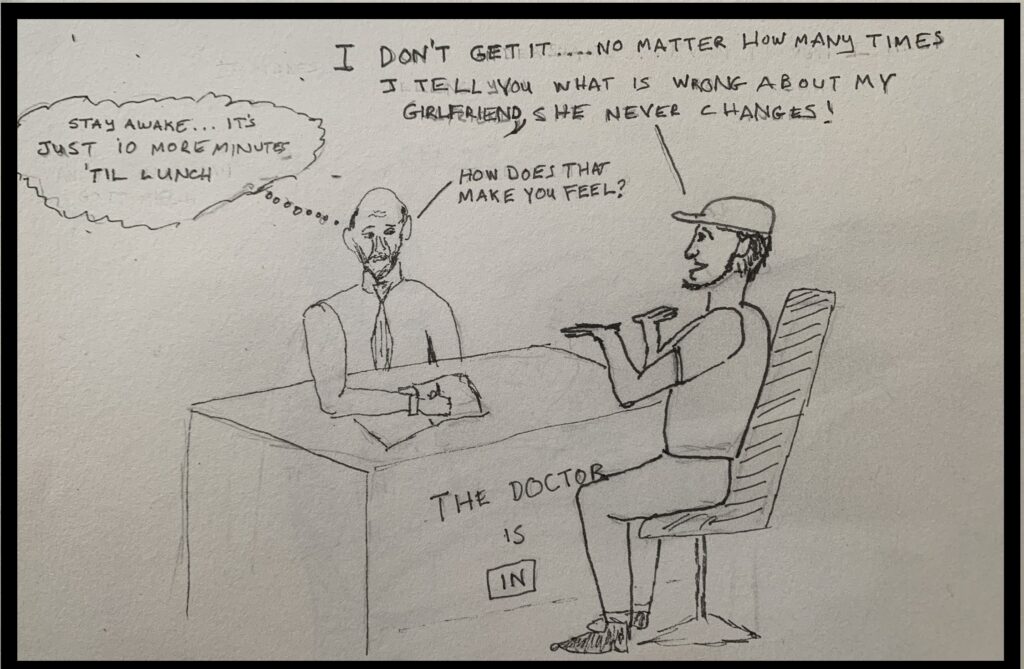
After pondering about the reasons behind his recent break-up and speculating on his ex’s psychological issues, my friend proclaimed, “I think everyone needs to be in continuous therapy working on their issues.” I’ve heard similar sentiments echoed on podcasts, in the news, on online dating profiles and in random conversations with others.
I disagree. Vehemently.
And I’m someone who has personally benefited from therapy at two critical times in my life. The first time was when I stopped drinking and needed to make significant changes to my life. The second time was a few years later when my stepdaughter died. Both time, therapy helped me process my feelings, make clearer decisions and take actions to address my problems. Every week after therapy, I had an action plan of things to do before the following week. Taking these actions solved my problems.
When I went to therapy, it was nearly 20 years ago. At the time, therapy was not a mainstream activity. Characters on TV shows might be shown in therapy, but regular people like me kept it secret. I felt like it was a private matter and certainly nothing to brag about.
Times have changed.
Today, it is popular to broadcast that you are in therapy – often the longer, the better. It’s a way to score points in the “I’m a victim game” and bolster your credentials as an “enlightened, mature adult”.
I don’t buy it.
I’ve known many people who have been in therapy. They see their therapist every week for years on end – cycling repeatedly through the same problems without ever solving them. They think “talk therapy” is helping them. Yet, they continue to have the same anxieties and issues.
Used in this way, therapy is simply another way to avoid taking action.
Therapy doesn’t solve your problems. It can’t. Only actions solve problems.
In response to my friend, I said, “Mmmm…maybe.” Maybe everyone he knows could use therapy.
I suspect not.
I suspect that most of the people he’s thinking about (his ex included) already know what they should do, they just don’t want to do it.
So instead, they go to therapy.